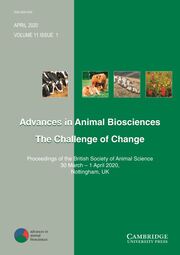Introduction: A public domain database providing information on tropical feeds would be valuable to livestock farmers and researchers both in Australia and internationally. The Animal Science Nutrition Laboratory of the Department of Employment, Economic Development and Innovation (DEEDI), Queensland Government, operates a central laboratory to provide an extensive range of nutritional analyses of pastures and other animal feedstuffs. Archival records date back more than 30 years. Data since 1995 has been stored in a digital format.
Detail: A Microsoft Access database currently contains about 10,000 records. This is divided about equally between forages (pasture samples immediately oven-dried or forages conserved as hay or silage) and concentrates (mainly grains or by-products of cereals or legumes, and oilseed meals).
For data storage most of the samples have been categorised and named as described by Göhl (Reference Göhl1975). The number of records within each of these categories is shown in Table 1. Where information is available entries are further described according to common name, variety, part of the plant and treatment. Samples submitted to the laboratory are often poorly identified with approximately 50% of the database entries having little description beyond the category. This is particularly the case for the pasture species. Information is usually lacking on stage of growth and how the sample might represent either the pasture on offer or that selected by the animal and hence inclusion of these pasture samples might be considered inappropriate.
Table 1 Categories and number of entries within the Animal Science database

Depending on the feed type and the submitter's request, the analyses performed on a feedstuff could include dry matter, ash, total nitrogen, gross energy, amino acids, crude fat, fatty acids, crude fibre, neutral detergent fibre, acid detergent fibre, lignin, in vitro digestibility (measured using rumen fluid), water soluble carbohydrate, starch, amylose, beta glucans, Ca, P, Na and K.
Conclusions: The Queensland Animal Science database contains nutritional data for a large number of tropical and sub-tropical animal feeds that potentially could be included in an international, public domain, feeds database. Because detailed information is lacking for the majority of ‘pasture’ samples, contributions might best be limited to concentrates, hay and silage. To ensure best quality of the data and the scientific outcomes, resources are needed to scrutinise the information in the database e.g. to confirm descriptions and to confirm the matching of formats and nomenclature.



